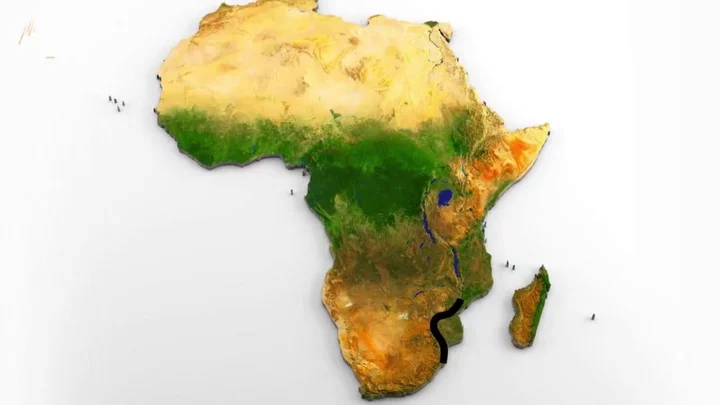Since the break up of Pangea that formed the world, we have been taught that there are seven oceans. But now, scientists believe a brand new ocean is currently forming as the continent of Africa is slowly beginning to split in half.
Researchers have found two large parts of the land within Africa have begun to separate and it's believed a whole new ocean will form in the divide.
Africa is the second-largest continent in the world, with a landmass of more than 30 million square kilometres, and is also the second-most populous. Many of its 54 countries are landlocked, however for some that could be about to change.
Geologists believe countries such as Uganda and Zambia could come to have their own coastlines if the two land masses continue to separate.
In the peer-reviewed journal, Geophysical Research Letters, experts have confirmed that the split in the African continent is creating a way for a new ocean to form.
Sign up to our new free Indy100 weekly newsletter
Scientists have identified the exact location where the continent first started to split, very deep underground. The crack first began to appear in 2005 in Ethopia’s deserts.
The crack is known as the East African Rift and is 35 miles long. The start is positioned at the meeting point of three tectonic plates which have been gradually pulling apart from each other.
Christopher Moore, a Ph.D. doctoral student at the University of Leeds, told NBC News: “This is the only place on Earth where you can study how continental rift becomes an oceanic rift.”
Moore and other researchers have used satellite radar to monitor the volcanic activity in East Africa as this is associated with tectonic shifts.
Despite being able to monitor movement, the split is a very gradual process, and scientists believe it will take another 5 to 10 million years for the new ocean to fully form.
Have your say in our news democracy. Click the upvote icon at the top of the page to help raise this article through the indy100 rankings.

